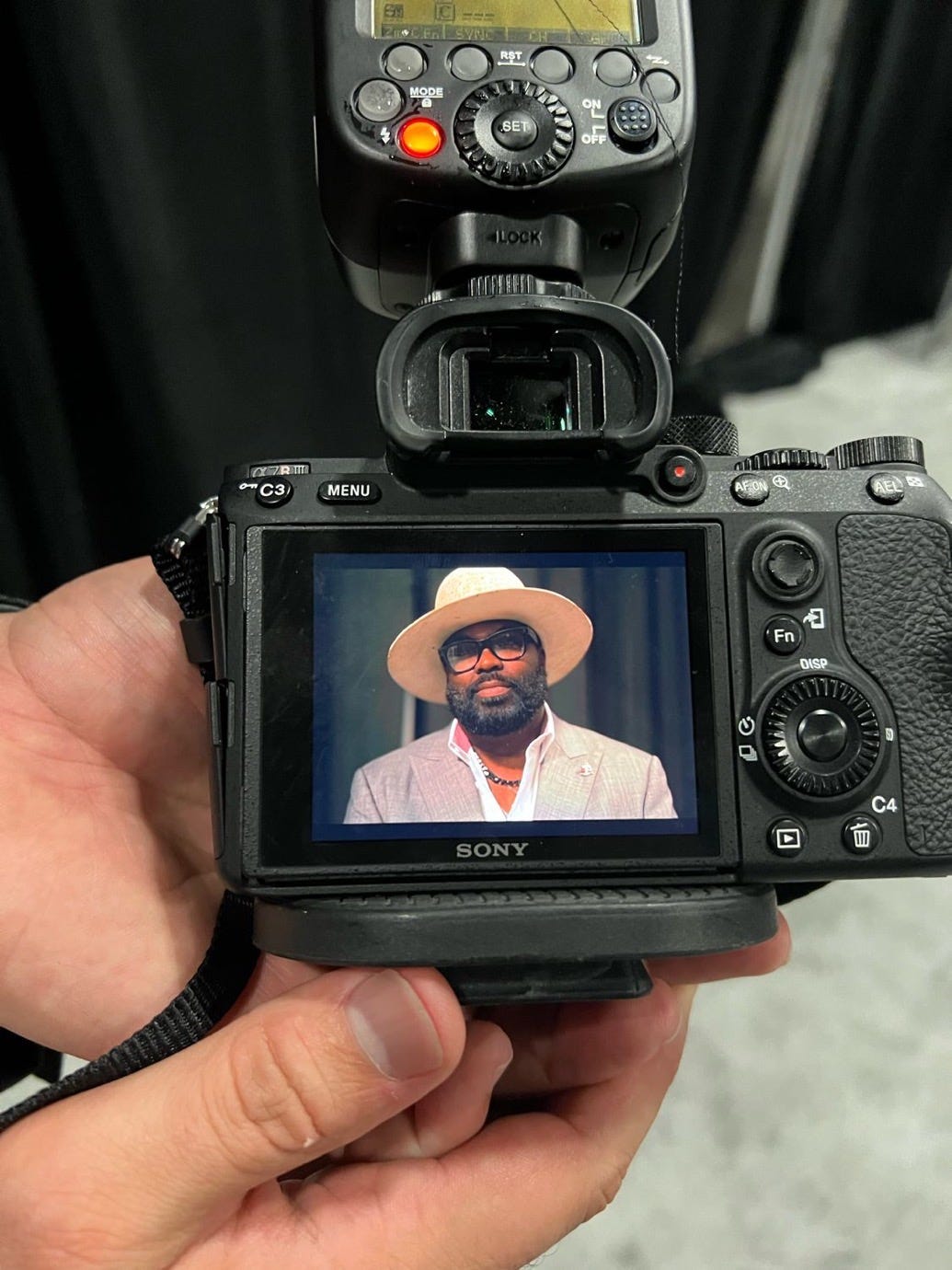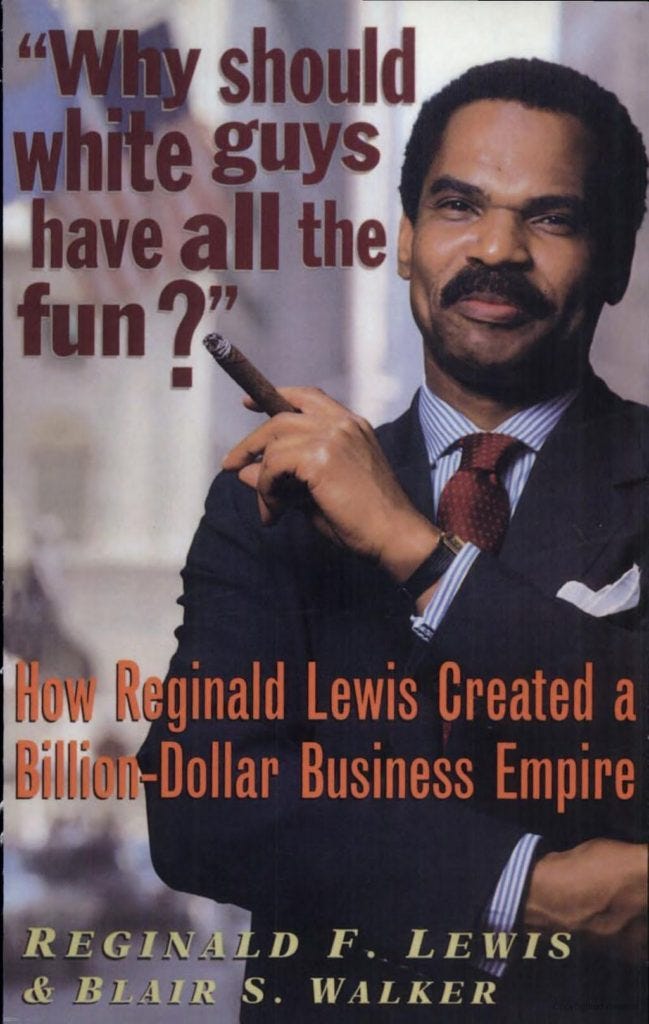Climate Tech Investor and Evangelist Taj Eldridge
“Climate change is a public health issue, an economic issue, and a social justice issue. I’m here to impact it all.”
When seeing Taj Eldridge for the first time, he doesn’t strike you as a climate world investor. An audiobook enthusiast and lover of poetry and music, Taj is often seen donning a crown fedora, part of a fashion flair that symbolizes the ultimate in urbane sophistication.
As I discovered in a recent phone conversation I had with him a few weeks ago, Eldridge has a fascinating backstory. A 25+ year veteran of the investment world, he has held high-level positions in banking, asset management, alternative investments, and entrepreneurship
Today, as the General Partner of Include Ventures, an enterprise aimed at Black and Brown founders and investors, Taj brings together an impressive portfolio of expertise in fintech, media, energy, transportation, and the circular economy. He is also one of the 70 Black Investors in Bevy.com, a $325 million virtual conference platform with a mission of building, growing, and scaling brands through in-person, virtual, and hybrid events.
Taj has a BA degree in poetry & literature from Texas A&M University-Commerce, an MBA degree in International Business from Pepperdine University, and studied geopolitical economics as a Ph.D. student at Claremont Graduate University. He also has studied abroad at The Universidad Adolfo Ibanez in Santiago, Chile, The Universidad Do Porto in Porto, Portugal, and The Hong Kong University of Science and Technology (HKUST) in Hong Kong, China.
Asked to share his views about the world of climate investing, where he now spends a big chunk of his time, Taj had this to say:
“Fear of climate change won’t change behavior. Introducing people to electric pickup trucks, longer-lasting clothing that looks good, or athletes and hip-hop artists that invest in climate tech just may.”
His efforts to connect the dots between climate investing and culture are personal, tied to his kidney disease diagnosis a few years ago. He attributes this to lead in the water in Dallas where he grew up.
“Illness became a catalyst for me to realize that we could do so much more than we’re doing.”
He says that when people talk about climate change and environmentalism these days along with the impact of it, he feels like there is a little bit of Catholicism in it because it’s always guilt-ridden.
“The narrative is always about the negative things that are happening. At the same time, I think there are positive things that can happen with the impact of climate change such as job opportunities. So in many ways, it’s an economic issue.”
He points to the American Medical Association's recent designation of climate change as a medical issue as a key inflection point in the discussion. Then, says Taj, is the social justice component.
“The thing that we’re often seeing is that the people who are creating the impact in terms of greenhouse gas emissions are the ones least likely to be impacted by it. On the other hand, communities of color, poor communities, are not only the one’s most impacted by climate change and environmentalism but there are the ones who are producing the least of what impacts us.”
It’s for this reason that Taj holds such a panoptic public health, economic, and social justice perspective around the climate issues at hand. This, he says, becomes particularly useful in terms of discussing climate change in an impactful way that connects with people versus in an adversarial and blameworthy manner.
On the venture capital side of all of this, Taj, had this to say in our brief discussion:
“I’ve been in the venture space since 1999, a very long time. And to be honest, the same conversations we were having in 1999 and 2000 about the lack of funding for Black and Brown founders we are still having today. And so that’s one of the things that was for me a catalyst for doing what I’m currently doing in this space.”
Since the murder of George Floyd, he believes we’ve seen a lot more companies, some performative, some more genuine in their support for underrepresented founders and climate managers.
Having grown up in Dallas, he says that he never knew anything about venture capital and financial capital, as the pathway for Black Americans in his mind was sports and music. But he says that it was a book by a Black businessman by the name of Reginald F Lewis called “Why Should All The White Guys Have All The Fun” that opened his eyes to the idea of venture capital his private equity. Taj adds:
“Lewis was a member of the Kappa Alpha Psi fraternity which I subsequently joined because of him and his book. This was the primary tool that opened my eyes to this space.”
The other thought leader that has played a major role in my environmentalism and social justice interest is a writer by the name of Etheridge Knight.
“He’s a poet who was formerly incarcerated. So that’s why I do a lot of work with this community. That and I have relatives who are in prison, where many venture capitalists are making money off of right now. He was married to Sonja Sanchez who was also a part of a whole generation of poets and poetry that really influenced me because they understood that you have to tell a story that connects with people.”
Taj offers this concluding thought:
“When I think about investing, climate change, and environmentalism, I think about connecting with people. Moreover, I think there is a greater responsibility for those of us who know about the issues to find ways to connect with folks that don’t know. So I want to see and hopefully we will see is a better way for those of us who understand the impacts of climate change to speak about it in ways where others better understand it and develop more of an interest in it…..
I call it the 8 and 80 rule where you have to talk about in a manner in which either an 8 year old or 80 year old can understand. That in my mind is how we need to talk about issues of climate to ensure that we are building a big tent strategy.”
——-
Additional books focusing on the intersection between environmentalism and economic, public health, and social justice.
A Terrible Thing to Waste: Environmental Racism and Its Assault on the American Mind by Harriett A. Washington
The Sum of Us: What Racism Costs Everyone and How We Can Prosper Together by Heather McGhee
Climate Change Is Racist: Race, Privilege and the Struggle for Climate Justice by Jeremy Williams





